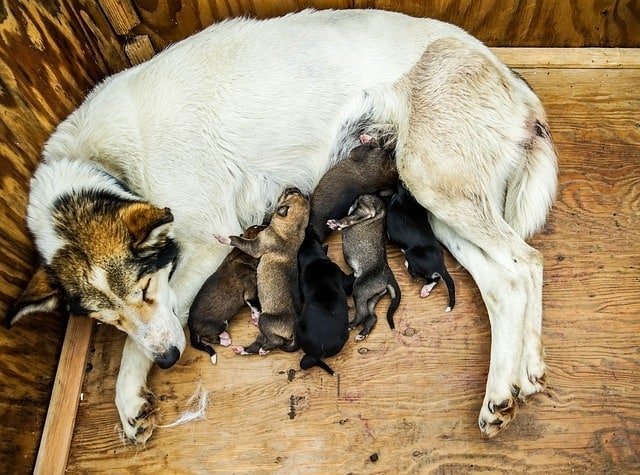
Welcoming a litter of adorable puppies into the world is undoubtedly an exciting and heartwarming experience. However, as a responsible dog owner, it’s crucial to pay close attention to the well-being of the mother during this time. If you’ve noticed that your dog looks skinny after giving birth, there could be various reasons behind this apparent change in body condition.
Postpartum Stress and Increased Energy Expenditure
The process of giving birth and caring for a litter can be physically and emotionally taxing for a mother dog. The stress associated with childbirth, coupled with the demanding responsibilities of caring for a growing litter, can lead to weight loss. The energy expenditure during pregnancy and nursing is significantly higher, contributing to the thin appearance.
Nutrient Drain and Loss of Body Reserves
Nursing mothers require additional nutrients to produce milk for their puppies. If the mother’s diet is not well-balanced or lacks essential nutrition, it can result in nutrient drain and utilization of body reserves, leading to a decrease in body condition. Adequate nutrition is paramount during this stage to support the mother’s health and ensure proper development for the puppies.
Inadequate Diet and Health Issues
A key factor contributing to a skinny appearance postpartum is an inadequate diet. If the mother dog isn’t receiving a nutritionally balanced diet, it can impact her overall health and lead to weight loss. Additionally, underlying health issues such as parasites, infections, or metabolic disorders could be at play. Regular veterinary check-ups are essential to rule out any potential health concerns.
Multiple Litters and Inadequate Recovery
Having multiple litters in quick succession can place immense strain on a mother dog’s body. Adequate recovery time between pregnancies is crucial to allow the mother to regain her strength and body condition. If the recovery period is insufficient, it may contribute to persistent weight loss.
Seeking Professional Guidance
If you’re concerned about your dog’s weight after having puppies, it’s imperative to consult with a veterinarian. A veterinary professional can assess your dog’s overall health, recommend a proper diet, and address any underlying health issues. They may also provide guidance on supplements and medical interventions to ensure the well-being of both the mother and her puppies.
How can I fatten up my nursing dog?

Fattening up a nursing dog should be approached with caution to ensure the health of both the mother and her puppies. Here are some general guidelines to help you support your nursing dog’s nutrition and body condition:
- Consult with a Veterinarian:
- Before making any changes to your dog’s diet, it’s crucial to consult with a veterinarian. A professional can assess your dog’s overall health, provide personalized advice, and rule out any underlying health issues.
- High-Quality Dog Food:
- Switch to a high-quality, well-balanced dog food that is suitable for nursing mothers. Look for options specifically formulated for lactating or pregnant dogs. These diets typically have higher energy and nutrient content to support the increased demands of nursing.
- Increase Food Portions:
- Gradually increase the amount of food you’re providing to meet the higher energy requirements of nursing. Monitor your dog’s weight and adjust portion sizes as needed to achieve a healthy and gradual weight gain.
- Frequent Feedings:
- Offer smaller, more frequent meals throughout the day rather than one or two large meals. This helps prevent the dog from feeling overly full and may encourage better nutrient absorption.
- Supplement with Healthy Additions:
- Consider adding healthy, calorie-dense supplements to your dog’s diet, such as boiled chicken, lean meats, eggs, or plain yogurt. These additions can provide extra calories and essential nutrients.
- Omega-3 Fatty Acids:
- Include sources of omega-3 fatty acids in the diet, such as fish oil or flaxseed oil. These can support the dog’s overall health, including coat condition and joint function.
- Monitor Water Intake:
- Ensure your dog has access to clean and fresh water at all times. Adequate hydration is crucial, especially for a nursing mother.
- Regular Exercise:
- While it’s essential to provide proper nutrition, regular, moderate exercise is also important for maintaining overall health. Engage your dog in light activities that she enjoys.
- Avoid Overfeeding:
- While you want to support weight gain, it’s essential to avoid overfeeding, which can lead to obesity. Monitor your dog’s body condition, and adjust the feeding plan accordingly.
- Postpartum Care:
- Ensure your dog has sufficient time to recover between pregnancies if you’re planning on breeding her again. Adequate recovery time is essential for her health and well-being.



